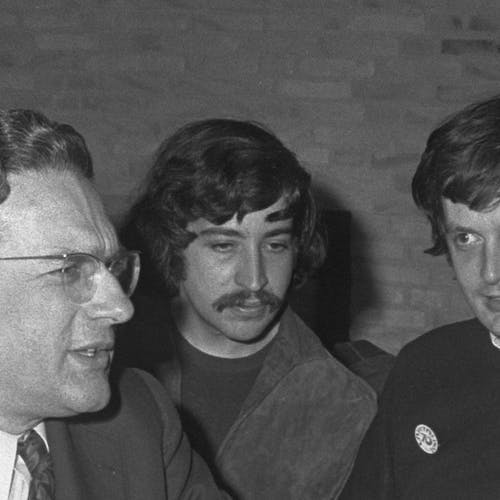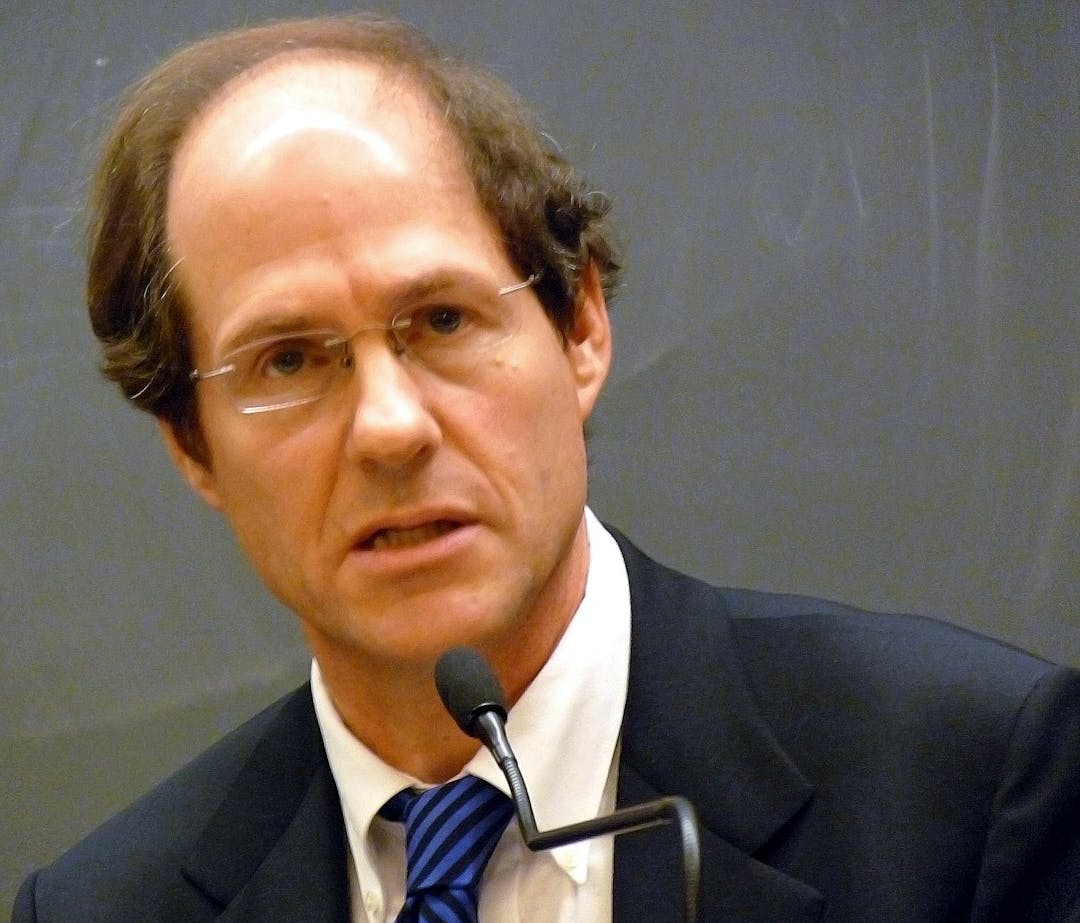Herbert Gintis
Reshaping the study of human behaviour
Intro
My research concern, starting from my dissertation, has been to figure out a decent model of the human actor--how people make decisions and how they strategically interact.”
- Herbert Gintis in an interview for the University of Massachusetts Amherst
Herbert Gintis is a Harvard educated economist who studies behavioral science through a sociobiological lens. In other words, he attempts to understand human behavior not using a behavioral model from any one discipline, but instead by combining these models in an interdisciplinary approach, which he believes is necessary for the accurate representation of human decision-making. His research interests range from altruism and cooperation to game theory and gene-culture coevolution, and he has made significant contributions to the literature. Gintis’ innovative theories have major implications for the future of behavioral science. If put into practice, they could reshape the way human behavior is researched and, by extension, how it is understood.
The behavioral sciences include economics, anthropology, sociology, psychology, and political science, as well as biology insofar as it deals with animal and human behavior. These disciplines have distinct research foci, but they include four conflicting models of decision-making and strategic interaction … The four are the psychological, the sociological, the biological, and the economic. … These four models are not only different, which is to be expected given their distinct explanatory goals, but incompatible. This means, of course, that at least three of the four are certainly incorrect, and I will argue that in fact all four are flawed, but can be modified to produce a unified framework for modeling choice and strategic interaction for all of the behavioral sciences
– Herbert Gintis in “Five Principles for the Unification of the Behavioral Sciences”
On their shoulders
For millennia, great thinkers and scholars have been working to understand the quirks of the human mind. Today, we’re privileged to put their insights to work, helping organizations to reduce bias and create better outcomes.
Innovative Ideas
Sociobiology - Explaining social behavior in evolutionary terms
Sociobiology is an area of research within biology that is concerned with explaining human social behavior from an evolutionary perspective. It is one of Gintis’ primary areas of interest and he has taken a sociobiological approach in much of his research, applying it to the topics of altruism and social cooperation. The term “sociobiology” was coined in 1975, by biologist Edward O. Wilson in his book Sociobiology: The New Synthesis.1 The basic idea is that, because behaviors are in part hereditary, they, like physical traits, are subject to natural selection, with more adaptive behavioral patterns being selected for and propagated within a species.2
Gintis’ contributions to the sociobiology literature include his book A Cooperative Species: Human Reciprocity and Its Evolution, which he co-authored with Samuel Bowles. In this 2011 release, Gintis and Bowles apply the concept of gene-culture coevolution to inform our understanding of human cooperation.3 The basic idea behind gene-culture coevolution is that there are cases when the interaction between certain aspects of culture and specific genes made certain traits more adaptive than others, which results in these traits being propagated within a species throughout evolution.4 Gintis and Bowles describe how in our evolutionary history, cooperation was the key to survival, especially in the context of competition and warfare with other groups. In these cases, cooperative groups tended to come out ahead. Gintis and Bowles also detail the importance of emotions like shame and guilt and the function of social norms in promoting in-group cooperation. We are incentivized to cooperate as failing to do so would result in punishment, both in the form of negative emotions and in the form of social consequences, such as being ostracized. Using models of gene-culture coevolution, Gintis and Bowles provide evidence for a sociobiological perspective of social cooperation.5
Understanding the evolutionary basis of behavior can be vital information for interpreting why people act in certain ways. This can inform future research by providing direction for new lines of study. It can also be beneficial for behavioral interventions, as it can enable a better understanding of why people develop certain behaviors, which can facilitate the process of unlearning certain undesirable behaviors or learning certain desirable ones. Sociobiology also encourages a transdisciplinary approach to behavioral science, which has the potential to improve our understanding of decision-making processes and account for some of the discrepancies between different models of human behavior.
The central issue is not why selfish people act generously, but instead how genetic and cultural evolution has produced a species in which substantial numbers make sacrifices to uphold ethical norms and to help even total strangers.”
- Herbert Gintis in A Cooperative Species: Human Reciprocity and Its Evolution
Unification of the behavioral sciences - Studying human behavior through a transdisciplinary lens
The behavioral sciences are economics, biology, anthropology, sociology, psychology, and political science. These disciplines make use of economic, biological, sociological, and psychological models of human behavior for the prediction and analysis of decision-making and social interactions. While these models are all used for the same purpose, they are fundamentally incompatible. Historically, the different behavioral sciences focused on distinct subject matters, and these contradictions were more or less ignored. However, the issues addressed in modern research overlap across several different areas of behavioral science, calling for a transdisciplinary approach. As such, the contradictions in the different models of human behavior are a major roadblock to the progression of behavioral science research.6 As a sociobiologist, Gintis is well aware of the importance of a transdisciplinary approach to understanding decision-making and social interactions. He asserts that there are common principles to the four different models of human behavior and proposes that they are used as a framework for the unification of the behavioral sciences. The five common, conceptual units he lists are game theory, complexity theory, gene-culture coevolution, the rational actor model, and the socio-psychological theory of norms.7
Gintis recommends that these five principles be applied to research in areas of overlap among the behavioral sciences, as they enable unity between the different disciplines and offer a solution to the problem of contradictions between the different models of behavior. Gintis gives an example of how economics and sociology can come together to explain the interplay between game theory and social norms. Game theory is a model in economics used to explain the strategy behind interactions between two or more people, while social norms, which are part of the sociological model of behavior, are the unspoken rules of society that guide our decisions and behavior. Gintis illustrates how economics and sociology view social interactions in very different ways. The economic perspective supposes that humans are rational agents who place their focus on the self and strive to maximize their benefits, while the sociological perspective regards humans as moral agents, who place their focus on others and strive to fill their respective social roles. The assumption within economics has been that game theory can be used to explain and predict decision-making within the context of human interactions and that the inclusion of social factors, such as norms, is unnecessary. Gintis argues that this is not the case, as game theory fails to explain social cooperation in social interactions between three or more people, where the specific decisions and actions of each individual are not always known by the others. He suggests that social norms will ensure cooperation among actors because they will feel compelled to stick to a previously determined division of labor and strive to successfully fill their assigned roles. In this way, Gintis believes that the economic model of behavior, specifically, game theory, can be complemented by the integration of the sociological model of behavior, specifically, the socio-psychological theory of norms. This serves as an example of how unifying the disciplines can provide a more robust understanding of decision-making.8
The framework proposed by Gintis has significant implications for the future of behavioral sciences, both in terms of research and real-world application. The ultimate goal is to enable a more accurate means of interpreting and predicting human behavior, specifically in the context of issues that are relevant across disciplines, such as discrimination, tax compliance, and substance abuse.9
Why do biologists use agent-based models, whereas economists consider them unworthy of recognition? Why do sociologists ignore the brilliant cultural models developed in biology? Why do some disciplines tolerate learning-by-experience models but not imitation models? Why do psychologists delight in interpreting their findings as undermining economic theory? Why do some disciplines barely tolerate analytical methods, while others barely tolerate applied, historical, and ethnographic methods? I do not presume to have answers for these questions.”
-Herbert Gintis in “A framework for the unification of the behavioral sciences"
Historical Biography
Gintis was an undergraduate at the University of Pennsylvania from 1958 to 1961. During his college years, he did not take a single economics course - in fact, he knew nothing of the discipline whatsoever. Following his graduation, he was accepted into graduate school at Harvard University. His original plan was to obtain his Ph.D. in mathematics, however, he left school after receiving his master’s degree. Gintis then took some time off and took over running a sandal shop in Boston from one of his friends. Eventually, he made the decision to return to school. Unsure of what studies to pursue, he turned to his friend, economist Chuck Levenstein, for advice. Levenstein asked Gintis if he was a Marxist, to which Gintis replied “yes”. Although he had done a few readings on the topic of Marxism, he wasn’t entirely sure what that meant.10 Yet, funnily enough, that answer changed the course of his future. Levenstein suggested Gintis study economics, stating that “the economy determines everything” (p. 2).11 Gintis says that, as a Ph.D. student, his primary interests were theoretical. With the encouragement of his colleague, economist Samuel Bowles, he slowly began to think about the evidence as well. As his career progressed, Gintis gained more and more interest in collecting evidence, which has now become his main focus.12
In the years that followed his graduation from Harvard, Gintis had trouble getting a professorship as an economist, due to his ideology, which was radical compared to the conservative Economics departments of the day. Throughout the years, he and Bowles remained friends and, in 1977, they, along with four other like-minded colleagues, were granted jobs at the University of Massachusetts. At first, Gintis and Bowles dedicated their research to Marx’s labor theory of value, but they eventually abandoned Marxism for other pursuits.13
My colleagues and I found dramatic evidence of this positive relationship between markets and morality in our study of fairness in simple societies—hunter-gatherers, horticulturalists, nomadic herders, and small-scale sedentary farmers—in Africa, Latin America, and Asia. … As in advanced industrial societies, members of all of these societies exhibited a considerable degree of moral motivation and a willingness to sacrifice monetary gain to achieve fairness and reciprocity, even in anonymous one-shot situations. More interesting for our purposes, we measured the degree of market exposure and cooperation in production for each society, and we found that the ones that regularly engage in market exchange with larger surrounding groups have more pronounced fairness motivations. The notion that the market economy makes people greedy, selfish, and amoral is simply fallacious.”
- Herbert Gintis in “Herbert Gintis Responds to Michael J. Sandel” in the Boston Review
More recently, Gintis has become known for his efforts to unify the different behavioral science disciplines. His paper, “Five Principles for the Unification of the Behavioral Sciences”, which was published in 2008, presents the underlying principles common to the different, and often contradictory, models of human behavior found in the different behavioral science disciplines of economics, biology, anthropology, sociology, psychology, and political science.14 He argues that the models of human behavior used in each discipline are each flawed in their own right and that the key to developing an accurate understanding of behavior is for the disciplines to come together and combine their models in a unified approach. In addition to academic papers, Gintis has written books on this topic, one of them being The Bounds of Reason: Game Theory and the Unification of the Behavioral Sciences, which was published in 2009. In this book, he argues that, while game theory has applications in all the behavioral sciences and can be used to understand behavior in a variety of different settings, it alone is not sufficient for explaining the entirety of human behavior. Gintis suggests that by combining game theory with models from the different behavioral science disciplines, we would be able to paint a more accurate picture of human behavioral patterns.15 Gintis has also given lectures on this subject, such as the one given at Cambridge University in 2009, which has been made available on YouTube under the title “Darwin and modern science”.
Gintis has worked with a number of notable names in academia, both within the field of economics and outside of it. Over the course of his career, his most frequent collaborator has been Samuel Bowles, an economist who Gintis befriended while in graduate school. Like Gintis, Bowles’ early research was influenced by Marxism. Their research led to the publication of their book Schooling in Capitalist America: Educational Reform and the Contradictions of Economic Life in 1976. As they moved away from Marxism, the duo set their sights on game theory.16 Gintis and Bowles continue to work together to this day, collaborating on research and co-authoring books, such as A Cooperative Species: Human Reciprocity and its Evolution, which was published in 2011 and addresses the genetic and cultural evolutionary bases for social cooperation.
Public work by Herbert Gintis
In the past, cross-disciplinary incoherence was tolerated because distinct disciplines dealt largely with distinct phenomena. … In recent years, however, the value of transdisciplinary research in addressing questions of social theory has become clear, and sociobiology has become a major arena of behavioral research. Moreover, contemporary social policy involves issues that fall squarely in the interstices of the behavioral disciplines, including substance abuse, crime, corruption, tax compliance, social inequality, poverty, discrimination, and the moral foundations of market economies. Incoherence is now an impediment to future progress.”
- Herbert Gintis in “Five Principles for the Unification of the Behavioral Sciences”
Herb Gintis on Social Mobility, Education, and Game Theory - Coffee with Cornelius
Cornelius Christian, a professor of economics at Brock University, has a YouTube channel on which he creates videos in a series called “Coffee with Cornelius”, in which he speaks with fellow academics and innovative speakers about a variety of issues. In this 50-minute episode from May 2020, he and Gintis discuss the low levels of social mobility in the United States, recommendations for how the education system should be reformed, and the ways in which game theory can be informative for the social sciences.
Rational Choice and Political Behaviour: A Lecture by Herbert Gintis
In 2018, the Centre for the Study of Governance and Society (CSGS) at King’s College London hosted a public lecture given by Herbert Gintis, in which he presents on the topic of rational choice and political behavior. The CSGS uploaded the lecture recording to their YouTube channel for free viewing.
Human behavior is studied in several different disciplines, but unification has been made impossible by incompatible models and methodologies. In this full-length lecture, Gintis presents the principles that are common to the study of human behavior, no matter the discipline. The aim of the lecture is to highlight that these principles can be applied to all human behavioral disciplines, thereby providing an opportunity for unity.
The Bounds of Reason: Game Theory and the Unification of the Behavioral Sciences
While Gintis acknowledges the importance of game theory to the behavioral sciences - disciplines like biology, anthropology, and economics - he also contends that it should not be the sole means of predicting or understanding human behavior. He points out game theory’s shortcomings and proposes that the different disciplines come together to share their knowledge of behavioral science to help fill the gaps in understanding human behavior that game theory alone cannot account for.
Individuality and Entanglement: The Moral and Material Bases of Social Life
In this 2016 release, Gintis takes an interdisciplinary approach to the study of human social behavior. He draws from biology, anthropology, sociology, psychology, moral philosophy, and, of course, economy, in order to stress the importance of unifying the behavioral sciences for understanding human behavior.
Moral Sentiments and Material Interests: The Foundations of Cooperation in Economic Life
Edited by Gintis, fellow economists Ernst Fehr and Samuel Bowles, and anthropologist Robert Boyd, this book parses through the literature to provide an interdisciplinary explanation of cooperation. Different aspects of cooperation are touched upon, from the role of social policy in reciprocity to the study of cooperation in non-human primates. The ultimate conclusion is that cooperation is not the result of selfish agents simply cooperating as a means to an end to further themselves, but that it is in fact the result of people who are “strong reciprocators”, who influence the group.
Game Theory Evolving: A Problem-Centered to Modeling Strategic Interaction
Published in 2000, this textbook highlights Gintis’ innovation in the area of game theory. It is targeted at graduate and upper-level undergraduate students, and includes study plans for instructors to follow, or draw inspiration from, in their teachings of evolutionary game theory. In this book, Gintis provides examples of the many varied applications of game theory. He has also developed several practice problems for students to use as a tool to guide their learning.
References
- Sociobiology. Encyclopedia Britannica. https://www.britannica.com/science/sociobiology
- See 1
- A Cooperative Species: Human Reciprocity and Its Evolution. Princeton University Press. https://press.princeton.edu/books/paperback/9780691158167/a-cooperative-species
- Feldman, M.W., and Laland, K.N. (1996). Gene-culture coevolutionary theory. Trends in Ecology and Evolution. 11(11), 453-457. https://doi.org/10.1016/0169-5347(96)10052-5
- See 3
- Gintis, H. (2008). Five Principles for the Unification of the Behavioral Sciences. The Bounds of Reason: Game Theory and the Unification of the Behavioral Sciences.
- See 6
- See 6
- See 6
- Herbert Gintis. University of Massachusetts Amherst. http://www.umass.edu/preferen/You%20Must%20Read%20This/Gintis%20Colander%20Interview%202004.pdf
- See 10
- See 10
- See 10
- See 6
- The Bounds of Reason: Game Theory and the Unification of the Behavioral Sciences. Princeton University Press. https://press.princeton.edu/books/paperback/9780691160849/the-bounds-of-reason
- See 10
About the Author
The Decision Lab
The Decision Lab is a Canadian think-tank dedicated to democratizing behavioral science through research and analysis. We apply behavioral science to create social good in the public and private sectors.





